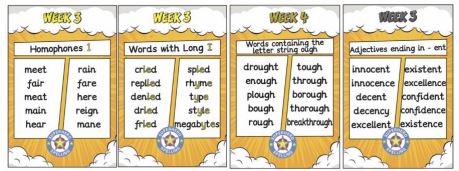Writing
Our Writing Curriculum
Our Intent
Children from North Crescent Primary School become successful communicators through stimulating experiences and exposure to rich literature - using a text-based approach rooted in research. They become readers through writing and writers through reading.
They navigate through an engaging and meaningful curriculum, which ignites their curiosity, alongside their awe and wonder of the world around them. Teachers provide purposeful writing opportunities and children publish their work to an audience. This encourages them to think like writers and fosters a sense of pride.
We aim for our pupils to enjoy writing across a range of genres and to be able to confidently communicate their knowledge, ideas and emotions through their writing in a variety of ways.
- For all pupils to acquire a wide vocabulary, a solid understanding of grammar and be able to spell new words by effectively applying the spelling rules they have learnt.
- For all pupils, of all abilities, to succeed in all English lessons.
- For all pupils to have a good knowledge of how to adapt their writing based on purpose and audience. They will be able to write clearly, accurately and coherently, adapting their language selections and style appropriately.
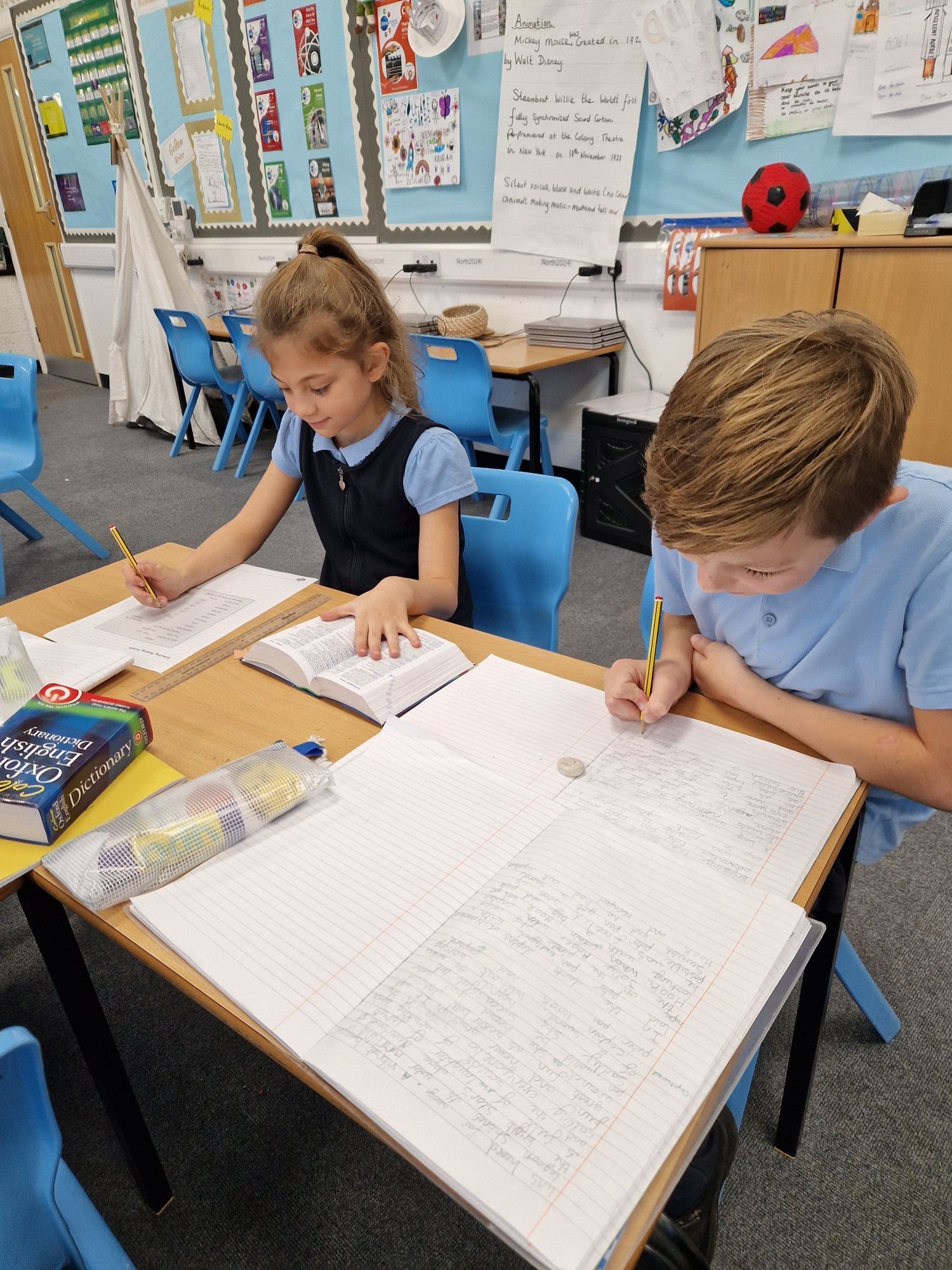
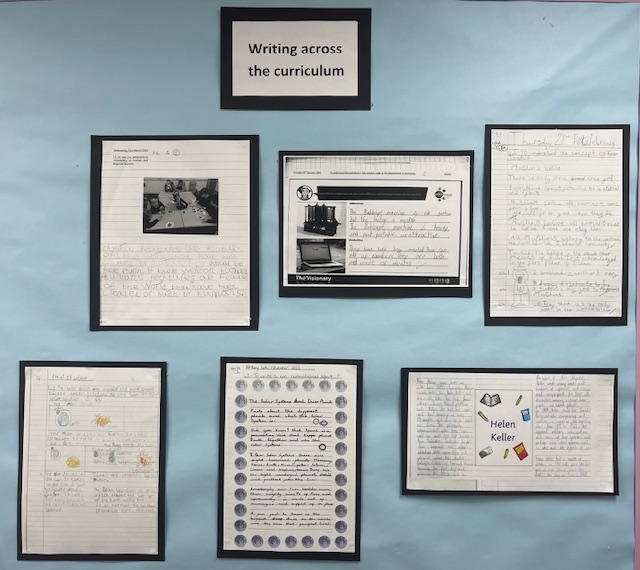
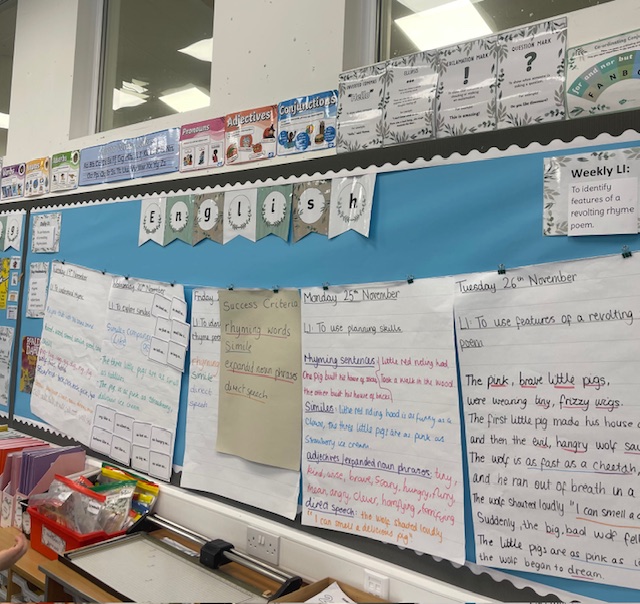
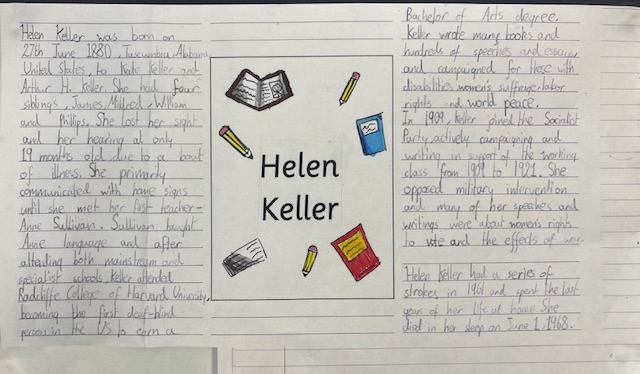
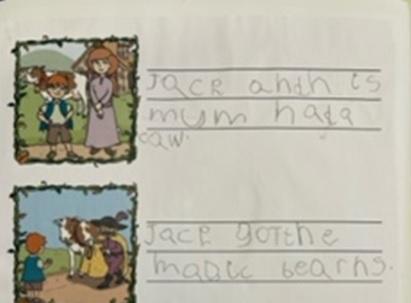
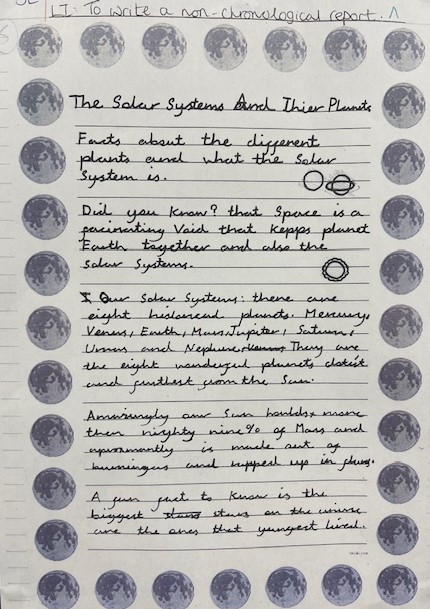
Our Implementation
At North Crescent we ensure that our writing curriculum supports children by:
- Using high quality texts and models which focus on the skills being taught. The children analyse the texts in depth in order to learn and be able to apply the skills to their own writing.
- Embedded practise and consolidation of grammar and punctuation skills so that all are successful in applying them to their own work.
- Valuing their writing at all stages of development thus encouraging the children to see themselves as writers from an early age.
- Providing a real purpose for writing and enabling pupils to become increasingly aware of their intended audience.
- Providing a multi-sensory approach - ensuring a range of contexts and stimuli.
- Adopting a range of spoken language skills, including drama.
- Providing outstanding role models through shared writing, where the teacher shares their own thinking and writing processes and experiences.
- Providing opportunities for collaborative writing.
- Providing scaffolding and appropriate support where appropriate.
- Giving the children experience of a range of ways to plan, edit and revise their work so they can choose which is appropriate for their needs as they progress through the school.
- Using checklists and success criteria for pupils to self-assess and/or peer assess, when appropriate, so they can evaluate effectively and identify areas for development.
- Encouraging joined handwriting to support spelling and fluency.
- Supporting pupils with learning and motor difficulties through specific, targeted interventions and support from the relevant outside agencies.

Our Impact
Through the organisation of the writing curriculum we have a community of enthusiastic readers and writers who enjoy showcasing their developing literacy knowledge and skills.
- Children are confident to take risks in their reading and writing, and love to discuss and share their ideas.
- Books, across the curriculum, evidence the high quality of learning.
- The children are able to write across a range of purposes and adapt their writing successfully, considering their audience.
PenPals Handwriting
We aim for our children to leave in Year 6 with the ability to write using their own style of fast, fluent, legible and sustainable handwriting, as well as other styles of writing for specific purposes. We believe that handwriting is integral to a child’s personal development and know that children’s engagement and self-esteem can be improved by their satisfaction and pride in good quality presentation. All of the staff within our school put a priority on teaching handwriting and have high expectations of handwriting and presentation across the curriculum.
Our school uses Penpals for Handwriting to ensure that:
• The importance of handwriting is recognised and given appropriate time.
• The progression of handwriting is consistent across the school.
• Handwriting is taught in a consistent and familiar manner.
• Handwriting is acknowledged to be a whole body activity and emphasis is placed on correct posture and pencil grip for handwriting.
• Pupils are supported to develop a handwriting style which is clear, joined and fluid.
• Pupils understand the importance of clear and neat presentation in order to communicate their meaning clearly.
• Expectations of left-handed children are equal to those of right-handed children, and appropriate advice and resources are available to ensure that they learn to write with a comfortable, straight wrist.
• Handwriting is linked into grammar, punctuation and spelling in order to practice and contextualise all of the transcriptional and stylistic skills for writing.
• Handwriting supports the progression of spelling as it enables fluency with aids with spelling.
• Children learn to self-assess their own writing and develop understanding and responsibility for improving it.
• Children learn to write in different styles for different purposes such as print for labelling a diagram, illustrated capitals letters for creating a poster, swift jottings for writing notes, making a ‘published version’ for presentation and fast, fluent and legible writing across the curriculum.
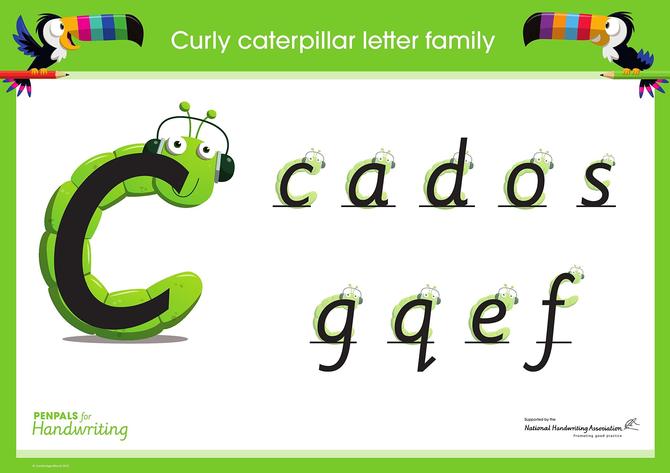
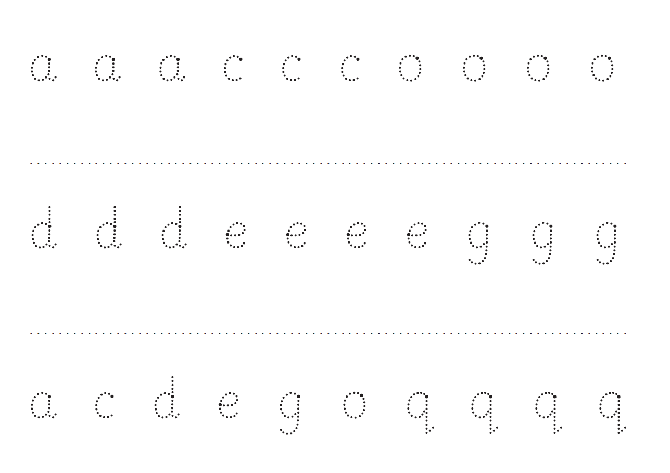
Spelling Programme
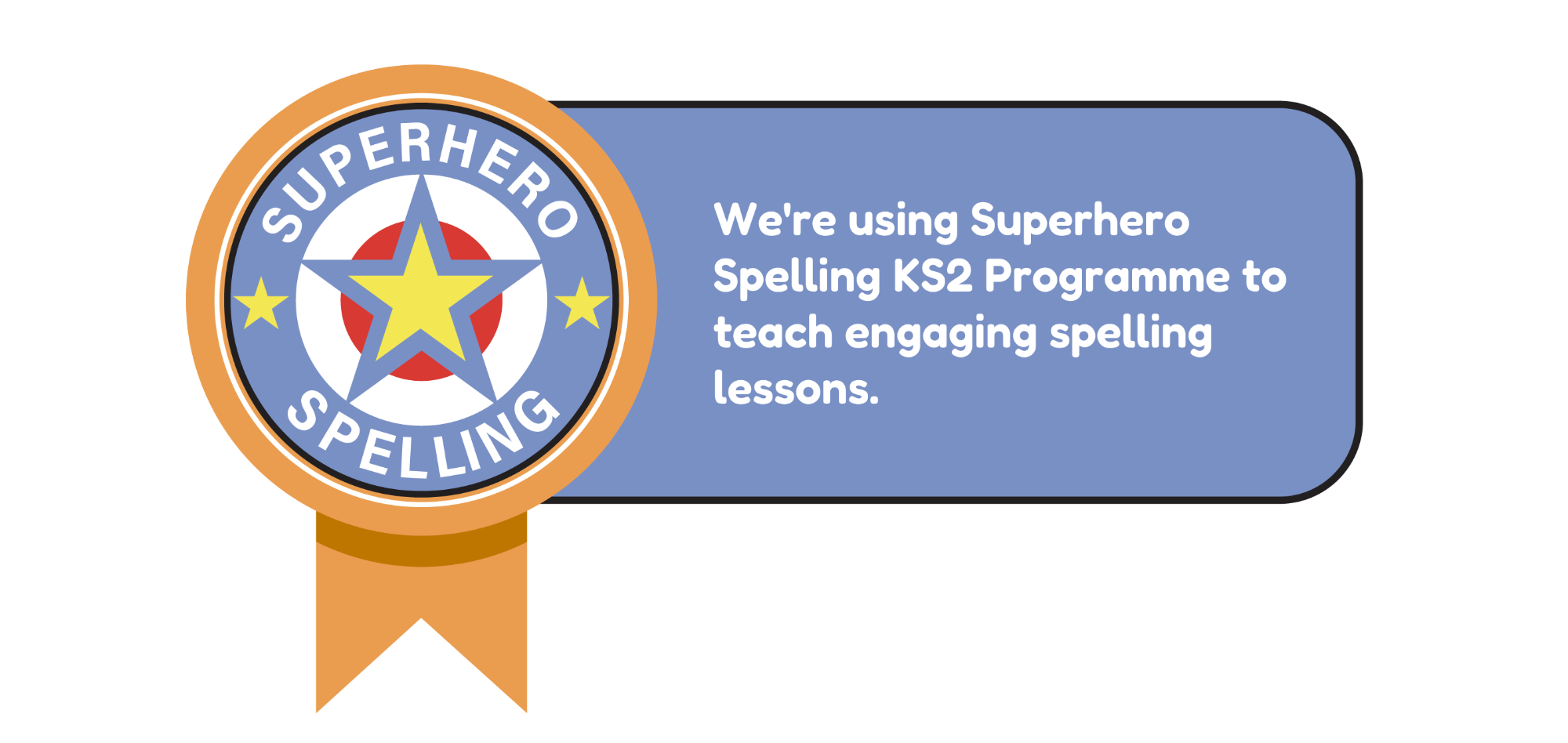
At North Crescent, we are using Superhero Spelling to support children’s spelling in KS2. The Superhero Spelling Programme is an engaging and dynamic resource that covers the full scope of the 2014 Spelling Curriculum, ensuring your child meets all Key Stage 2 spelling requirements.
Designed to build on phonics knowledge, it embeds essential spelling rules through fun and memorable activities led by a cast of superheroes and powerful memory cues. Each lesson is interactive, with a mix of age-appropriate activities that promote active learning. Children also benefit from partner work and talk time to reinforce their learning.
Discover our cast of superheroes:
As a parent your child will receive 10 weekly spelling words each week. Weekly dictation sentences integrate these spelling words, offering both practice and a self-check process. The programme places extra focus on statutory words in weeks 6 and 12 of each term, ensuring a comprehensive understanding.
With its powerful blend of visual, auditory, and kinaesthetic approaches, Superhero Spelling makes learning to spell an enjoyable and rewarding experience.

